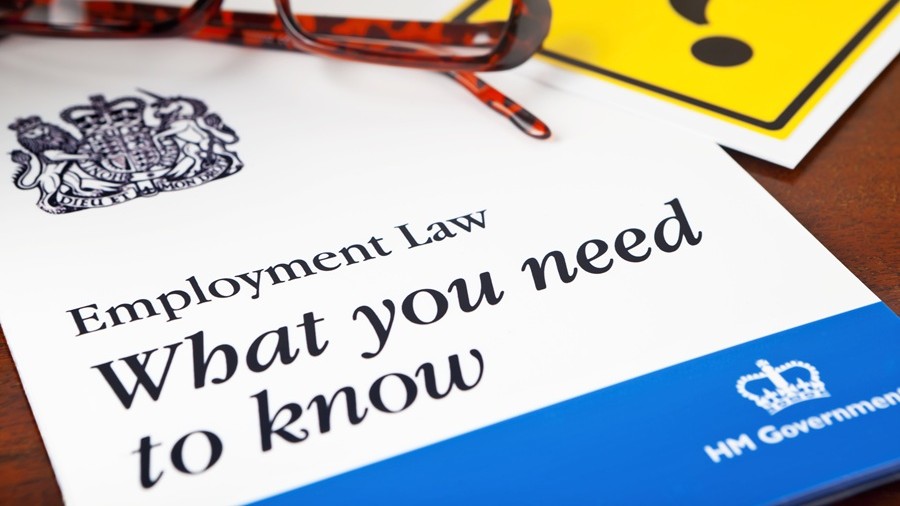There are a number of legal authorities dealing with the effect of an employee’s appeal against dismissal being upheld.
When the appeal is upheld, is some further action or consideration required of the employer to determine whether the employee gets their job back? Or, is the employee automatically reinstated?
The 2013 Employment Appeal Tribunal (“EAT”) case of Salmon v Castlebeck Care, and the 2018 Court of Appeal case of Patel v Folkestone Nursing Home reached much the same conclusion. They held that it is implicit in every appeal that the appeal panel has the power to overturn the earlier decision. Therefore, at least where the right of appeal forms part of the contract of employment, the effect of an appeal being upheld is that the dismissal is of no effect – the dismissal has “disappeared” and the employee is reinstated as if they had not been dismissed.
It is not even necessary for that decision to be communicated to the employee – once the appeal panel has decided to uphold the appeal, that is sufficient to reinstate the employee with backpay (unless the contract states otherwise). This is “inherent in the very concept of an appeal in respect of a disciplinary dismissal”.
These authorities have been considered recently by the EAT in the recent case of Marangakis v Iceland Food Ltd.
What if the employee doesn’t want their job back?
Mrs Marangakis was dismissed for gross misconduct in January 2019 (and therefore it has taken nearly 4 years for her claim to go through the employment tribunal and EAT process!). She lodged an internal appeal against dismissal, asking to be given her job back. However, she later changed her mind and advised the appeal panel that she did not want to work for Iceland and did not want to be reinstated.
Her appeal was upheld, and a final written warning substituted. She was told that she was reinstated with continuous service and backpay. She did not return to work and tried to return the backpay the employer had paid her. She was then dismissed for a second time in July 2019, on grounds that she had failed to attend work since being told her appeal had succeeded.
The Claimant lodged an unfair dismissal claim in relation to the first dismissal in April 2019, but not the second in July 2019. The employer defended the claim on grounds that the employee had not been dismissed in April 2019 – that dismissal was of no effect as the appeal had been upheld.
The employment tribunal agreed with the employer and the claim of unfair dismissal was rejected. It would have been different if the internal appeal had been withdrawn by the employee before the employer had reached a decision on it, but it had not been. The employee’s statement that she did not want her job back did not amount to a withdrawal of the appeal. Therefore, when the internal appeal was upheld, the employee was reinstated with backpay, whether she wanted it or not.
The employee appealed the tribunal’s judgement, and the EAT agreed with the employment tribunal. The employee’s subjective wish not to be reinstated was irrelevant, and she had not unambiguously withdrawn the appeal. As there had been no dismissal in April 2019 (the dismissal being rendered of no effect by the appeal), she could not claim unfair dismissal. The employee had not alleged that the July dismissal was unfair. Mrs Marangakis had not sought to argue constructive dismissal either.
In the Folkestone case (above) the employee was not able to claim to have been dismissed, because the appeal had been upheld and he had been reinstated, but the employee’s complaints about how the appeal had been handled could potentially allow the employee (having been reinstated) to immediately resign and claim constructive dismissal.
Interestingly, it was accepted by both parties in the Iceland appeal (and “assumed” by the EAT) that the same principles apply if the right of appeal is not contractual. This goes beyond the original authorities and is a notable development.
Why is this case important for all employers?
This decision makes clear what the consequences are of an appeal being upheld.
Employers in some sectors offer a right of appeal to an external body, as part of the contractual disciplinary process, and need to be aware that if the external body upholds an appeal against dismissal, the employee will (unless the contract states otherwise) automatically be reinstated with backpay, with no need for the employer to take any further steps or make any decision.
Reinstatement applies whether the employee wants to be reinstated or not.
It is also important for all appeal panels to understand this case, and not to uphold an appeal on a technicality. An appeal against dismissal should only be upheld if the intention is that the employee gets their job back.
Expert advice on these issues is available from our team of employment lawyers.
This update contains general information only and does not constitute legal or other professional advice.





